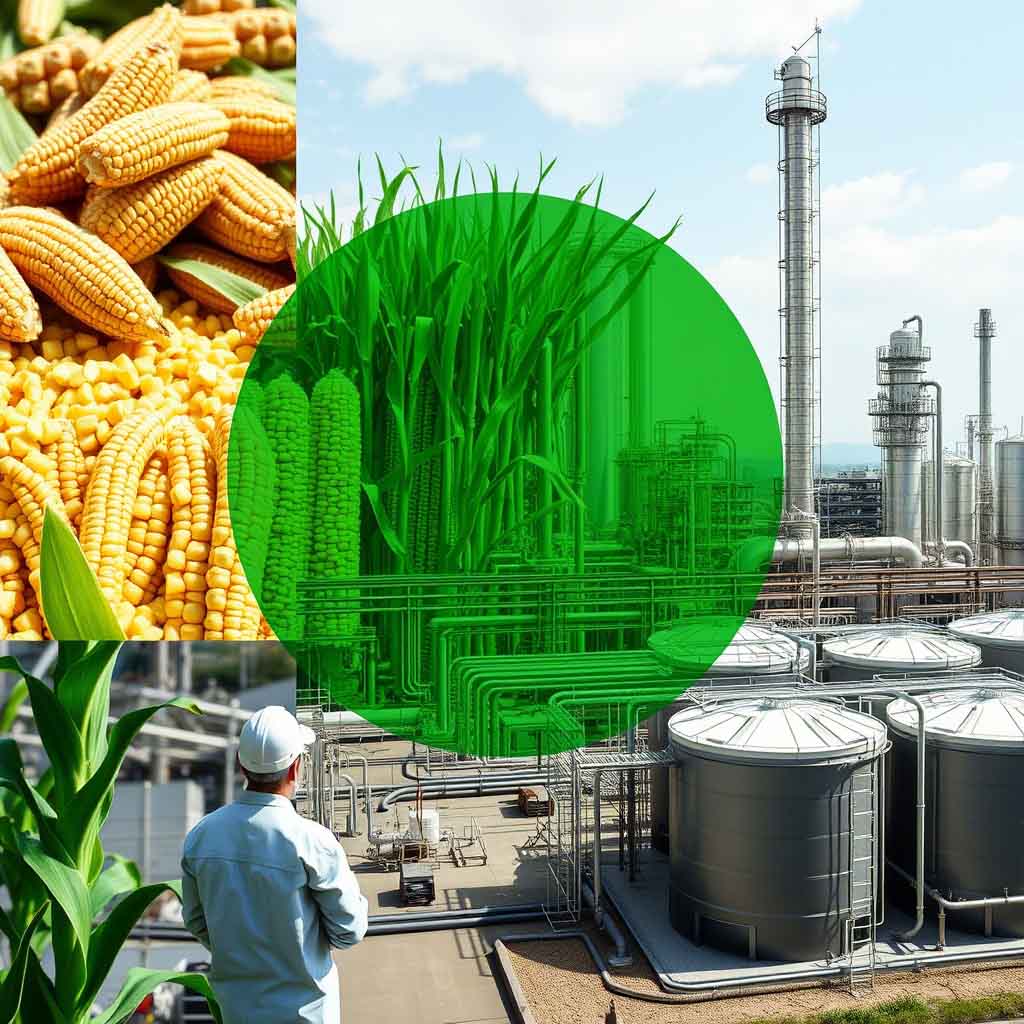Ethanol production for energy in China has played a significant role in the country’s efforts to diversify its energy sources and reduce its reliance on fossil fuels. Over the years, China has made considerable advancements in the development and scaling of ethanol production for energy purposes. The shift toward biofuels like ethanol has been driven by both environmental concerns and the need for energy security. In this article, we will explore the past, present, and future of ethanol production for energy in China, highlighting key developments, challenges, and the country’s evolving role in the global biofuel industry.
Click to use Silverigroup personal shopper services
The Historical Development of Ethanol Production in China
The historical development of ethanol production in China has been closely tied to the country’s growing energy needs and environmental concerns. In the early years, China focused primarily on traditional biofuels like coal and wood. However, as the demand for cleaner energy sources rose, the Chinese government began exploring ethanol as a renewable alternative. In the 1980s, the first ethanol plants were established, with a focus on using agricultural products like corn and sorghum. By the 2000s, China began investing in large-scale ethanol production facilities, supported by government policies to reduce reliance on fossil fuels. Over time, China’s ethanol industry expanded rapidly, becoming a key player in global biofuel production. Today, ethanol production continues to evolve, with advanced technologies aimed at improving efficiency and sustainability.
Click to buy citric acid from Silvairgroup
China’s Renewable Energy Goals and Ethanol’s Role
China has set ambitious renewable energy goals as part of its broader strategy to reduce carbon emissions and transition to a more sustainable energy system. Ethanol plays a crucial role in these efforts, contributing to cleaner transportation fuels and decreasing the country’s reliance on fossil fuels. As part of its renewable energy development plan, China has invested heavily in the production of ethanol, mainly from agricultural crops such as corn, sugarcane, and sweet potatoes. The Chinese government has implemented supportive policies, including subsidies and incentives, to promote ethanol production and usage, especially in the transportation sector. Additionally, the use of ethanol-blended gasoline helps reduce air pollution and greenhouse gas emissions, aligning with China’s commitment to international climate agreements. With future advancements in technology, China aims to increase ethanol production from non-food sources, such as agricultural waste, making it a vital part of their renewable energy landscape and contributing to long-term environmental sustainability.
| Topic | Details |
|---|---|
| Renewable Energy Goals | China aims to reduce carbon emissions and transition to sustainable energy. |
| Ethanol’s Role | Ethanol contributes to cleaner fuels and reduces dependence on fossil fuels. |
| Primary Sources | Corn, sugarcane, and sweet potatoes are major sources of ethanol production. |
| Government Policies | Subsidies and incentives support ethanol production in China. |
| Environmental Impact | Ethanol helps reduce air pollution and greenhouse gas emissions. |
| Future of Ethanol | Focus on increasing ethanol from non-food sources like agricultural waste. |

Technological Innovations in Ethanol Production in China
China has significantly advanced ethanol production through the adoption of cutting-edge technologies. Innovations like:
- Enzyme-based hydrolysis and fermentation techniques have improved the efficiency of converting raw materials like corn and agricultural waste into ethanol;
- The shift towards second-generation biofuels, which utilize non-food biomass, has addressed concerns over food security and resource competition;
- Recent investments in carbon capture and storage (CCS) technologies have minimized the carbon emissions associated with ethanol production;
- Research into genetically engineered microorganisms has enhanced ethanol yield by improving the fermentation process;
- The country is also exploring the potential of algae-based ethanol, which could offer a sustainable, high-yield solution.
Click to buy Beluga Fresh Frozen from Silverigroup
These advancements are not only increasing ethanol production capacity but also making the process more sustainable, aligning with global environmental goals.
Economic Benefits of Ethanol Production for China’s Energy Market
Ethanol production provides substantial economic benefits to China’s energy market. The domestic production of ethanol helps reduce China’s reliance on foreign oil and boosts energy security. By turning agricultural products like corn and sugarcane into ethanol, China is diversifying its energy sources and creating a more resilient energy market. Ethanol production also provides a significant number of jobs, particularly in rural areas, supporting local economies. As ethanol serves as an alternative fuel, it stabilizes energy prices by reducing vulnerability to fluctuations in oil markets. Moreover, the ethanol industry is becoming an important part of China’s green economy, attracting investment in clean energy technologies. The creation of a domestic ethanol market supports the transition to renewable energy sources, aligning with the country’s long-term economic sustainability goals.
Environmental Impacts of Ethanol Production for Energy in China
The environmental impacts of ethanol production in China are a mixed bag:
- Carbon emissions reduction: Ethanol is a cleaner alternative to fossil fuels, contributing to the reduction of carbon emissions;
- Waste management: By utilizing waste products and biomass from agricultural processes, China reduces landfill waste and promotes recycling. However, large-scale ethanol production has potential environmental drawbacks:- Land degradation: Intensive farming for biofuel crops can lead to deforestation and soil erosion;- Increased water usage: The demand for water in biofuel crop cultivation may strain local resources;- Chemical input pollution: The use of fertilizers and pesticides in crop production can pollute the soil and water.
To address these challenges, China is shifting towards:
- Using agricultural residues and non-food crops like switchgrass for ethanol production, minimizing the ecological footprint while maximizing benefits.
Government Policies Supporting Ethanol Production in China
China’s government has actively supported ethanol production through various policies aimed at promoting renewable energy and reducing reliance on fossil fuels:
- Tax incentives and subsidies to encourage domestic ethanol production;
- The national ethanol mandate, launched in 2007, requires a portion of gasoline to be blended with ethanol, driving demand for the fuel;
- Investments in research and development of advanced ethanol technologies have been supported by both local and central government funds;
- The Green Energy policy encourages the growth of biofuels and promotes sustainable farming practices;
- Public-private partnerships have been facilitated to enable technological advancements in the industry.
These policies not only stimulate the ethanol sector but also contribute to China’s long-term energy independence and environmental sustainability goals.
China’s Position in the Global Ethanol Industry
China plays a significant role in the global ethanol industry, primarily as a large producer and consumer. The country has steadily increased its ethanol production, fueled by its commitment to renewable energy sources and reducing carbon emissions. Ethanol in China is largely derived from corn, though there is a growing focus on alternative feedstocks like agricultural waste.
In recent years, China has become one of the world’s largest ethanol producers, driven by both domestic demand for cleaner energy alternatives and government policies promoting biofuels. Despite being a major producer, China still imports ethanol, particularly from countries like the United States and Brazil, to meet its growing demand.
As China’s renewable energy sector expands, its position in the global ethanol market continues to evolve, with increased investments in technology and infrastructure supporting the industry’s future growth.
The Future of Ethanol Production in China: Trends and Opportunities
The future of ethanol production in China is shaped by several key trends and opportunities that align with the country’s energy and environmental goals. As China moves toward a greener economy, ethanol will play a crucial role in reducing reliance on fossil fuels and achieving carbon neutrality. Key trends include:
- Advancements in technology: With continuous improvements in biotechnology and fermentation processes, China is expected to enhance ethanol yields and reduce production costs;
- Second-generation biofuels: These fuels, produced from non-food biomass, present an opportunity to overcome the ethical concerns of using food crops for energy;
- Government support: China’s commitment to renewable energy policies and sustainable agriculture will further encourage ethanol production;
- Global market expansion: As international demand for biofuels rises, China has the opportunity to export ethanol and related technologies, becoming a global leader in biofuel production.
These opportunities make ethanol a vital component of China’s energy future, contributing to both environmental sustainability and economic growth.
Conclusion
Ethanol production for energy in China has evolved significantly, from its early development to the present-day achievements in sustainable fuel production. The country’s commitment to renewable energy, technological innovations, and governmental support has made ethanol a key player in reducing carbon emissions and enhancing energy security. Looking ahead, China’s focus on second-generation biofuels and advancing production technologies presents vast opportunities. As China continues to integrate ethanol production with its broader energy strategy, it is well-positioned to meet growing demand for renewable energy while advancing global sustainability goals. The future of ethanol production is both promising and pivotal for China’s energy landscape.
FAQs
What is the future of ethanol production in China?
The future of ethanol production for energy in China is promising, with advancements in biofuel technologies and a stronger focus on sustainable sources. As China continues to align with renewable energy goals, the sector is expected to see further growth, contributing to the nation’s energy security.
What are the recent developments in ethanol production for energy?
Recent developments in ethanol production in China focus on improving efficiency and using second-generation biofuels. Technological innovations and government policies have supported this shift, increasing the sustainability and environmental impact of ethanol as an energy source.
What is the global ethanol production forecast?
Global ethanol production for energy is projected to grow, driven by rising demand for renewable energy sources and sustainable fuels. China’s increasing commitment to renewable energy will likely influence global production trends, particularly in the biofuel sector.
How is ethanol produced for energy in China?
In China, ethanol for energy is primarily produced from agricultural waste, such as corn and sugarcane, through fermentation. Technological innovations and government incentives are enhancing the efficiency of this process, making it a key component of China’s energy strategy.

